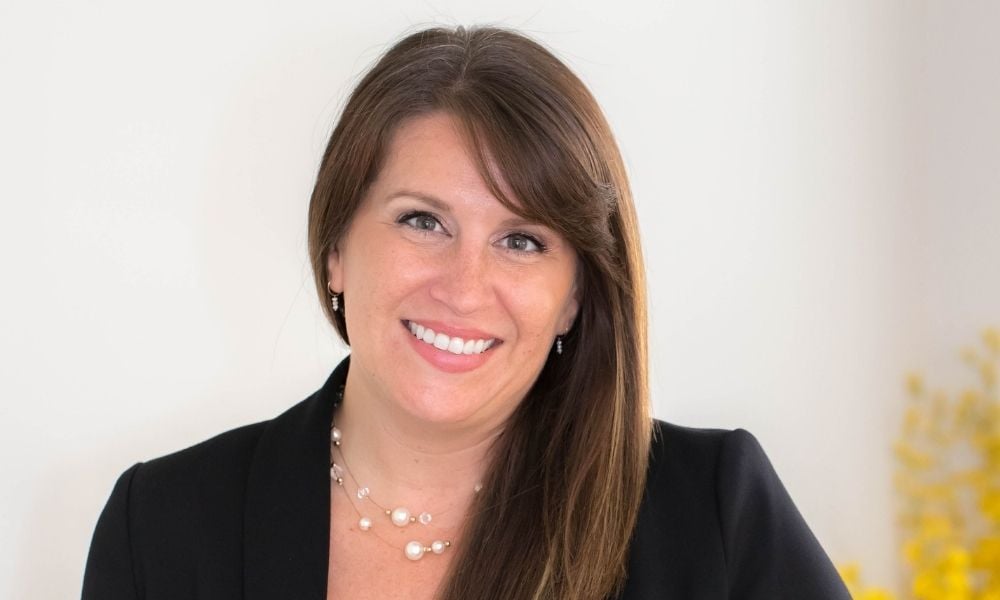Advisor explains how business grew even while undergoing a generational transfer during the pandemic

Angel and Walter V. Georgijev have just successfully transitioned the ownership of Georgijev Financial Group in London, Ontario, while growing their business during the pandemic - and she says the secret is communication.
“We’ve been planning for this transition for the better part of five or 10 years, but really since I joined the firm,” Angel Georgijev, a certified financial planner and wealth advisor who’d worked with Walter, her dad, for 20 years, told Wealth Professional. “So, it’s certainly been a long endeavour, maybe longer than some people necessarily need, but it has helped us and helped the clients in the business be prepared, or as prepared as you can be.”
Walter, who became a certified financial planner, started in the life insurance industry in 1981 and incorporated Georgijev Financial Group in 1994. The pair jointly managed it for about seven years. Walter relinquished his investment license at the end of 2020, and Angel took over the business in January 2021. Walter was in his 40th year when he finished doing insurance in August and stepped away from the business.
“I’d say the biggest takeaway from doing the transition would be communication,” said Angel. “I say communication between the two parties, meaning the one taking over and the one retiring, about their expectations: what each thinks the transition looks like as the seller will have one vision of what it will look like, and the buyer has another, even if it’s a transition from father to daughter, as in my situation, or non-related parties. So, communicating about what those expectations are is really key.
“Then there’s also the communication with clients. If you do your job right, they should expect their advisor to retire as we work with them over their lifetimes,” she said. She added that advisors can ease that by sharing with their clients that they’re preparing for retirement, even as they’re helping their clients do the same.
“Advisors fear their clients are going to leave when they know their advisor is retiring, but they only do that in the absence of someone trusted who’s coming in to help,” said Angel. “So, advisors saying the year before they retire that they’re going to introduce them to a total stranger is very different than having the new advisor become part of the plan with the clients all along.”
Although she noted the industry recommends a five-year runway, she said it should be at least two to five years – “I think the longer, the better” – so the retiring advisor can ensure clients have time to come to trust the new advisor. “I think that’s how you get high retention rates, when the new advisor isn’t, in fact, new to the client,” she said.
Still, she was clear as she was transitioning their clients that they were interviewing each other to ensure a fit, so they could build a strong base to continue to share their hopes and dreams to access their advisor’s best advice.
“The first year, I was being tested and I fully expected it,” said Angel. “Because they had to get used to my mannerisms and idiosyncrasies and just the fact that I’m not Walter. It was a really fun experience because I got a lot of emails from clients that I’d known for years, saying: ‘Listen, no disrespect, but I really wasn’t sure what to expect’. But, in every instance, they said: ‘We were pleasantly surprised and really look forward to continuing to work with you.’ I knew they were testing me. But you have to expect that and be okay with it. You can’t just assume that because, in my case, I have the same last name, that this is going to be easy. We had to get to know each other.”
Communication is also key for the intergenerational business Georgijev has as it services three to four generations of a family. Angel values it since the advisors’ and clients’ families have become intertwined.
“One of the things we really put a lot of value and focus on is that communication from one generation to the next,” she said. “I find that’s the best way to get ahead of any potential issues, certainly as money is passed from one generation to the next. A lot of times we can provide that sounding board, that neutral party, to have those discussions because every family’s level of comfort with these conversations is different. Some are really comfortable talking about the nitty-gritty and the specifics of the dollars. For others, it’s a matter of talking in principle, what their wishes and hopes are. I find that having those open conversations, at whatever level they’re comfortable, just facilitates that transfer and helps to alleviate the stress, certainly when your loved one dies.”
The Georgijev Financial Group has also experienced phenomenal growth in the past year, although Angel would rather not publicly share how much. She attributed it to streamlining their communications and operations. So, they’ve not only used Zoom during the pandemic, but ensured their office is mobile, so she can work anywhere.
“I think that’s certainly helped with the growth,” she said, “because we’re a little more efficient now. It’s just part of where we are in that stage of business where we’re able to leap forward in that way.”
So, what would she say to other advisors contemplating a similar family, or other, business transition?
“Expect things to happen and just be open and ready to handle them as they come. Because there are always going to be parts of a transition that you didn’t plan on and which may impact the timeline you envisioned. So, you have to be willing to adapt to change, and sometimes you have to pivot quickly,” she said. “But I think that’s true of everything in life!”



